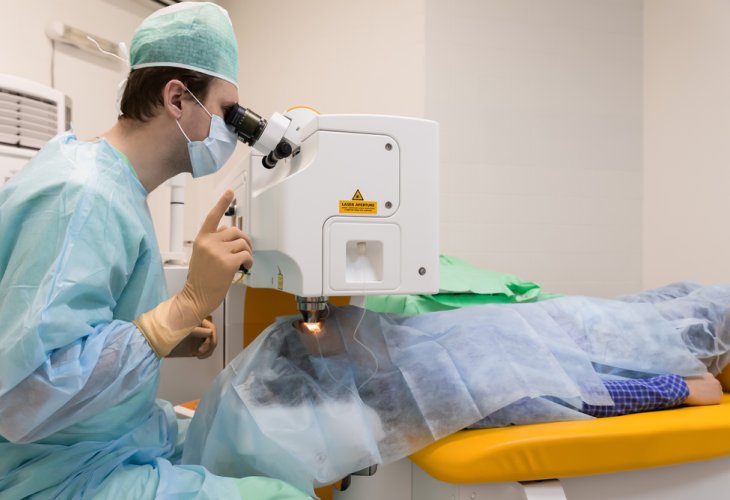Laser Eye Surgery: Essential and Useful Information, Post-Surgery Insights
What happens after the surgery? Laser eye surgery has become very popular in recent years. After researching the type of surgery and the right place, it's time to think about the post-surgery period.
 (Photo: shutterstock)
(Photo: shutterstock)Eye surgery is a "desired" procedure. Many people, especially those who have been wearing glasses for many years, wish to undergo the surgery to relieve the hassle of wearing glasses. Sometimes, these laser surgeries are also performed for medical reasons, such as cataracts and so on.
We often research a lot about the surgery, the place where it will be performed, the suitable type of surgery, etc. But it is important to know not only what happens before and during the surgery - but also afterward.
The first week after laser surgery
In the first week after laser eye surgery, different types of eye drops must be applied as per the prescription. The drops are intended to prevent inflammation and infections, and also replace tears and create moisture in the eyes. Additionally, during the first 4 days, while showering and at night, hard plastic protective glasses should be worn to prevent accidental contact with the eyes. For the same reason, it is important to avoid contact sports, like ball games. Swimming and makeup are also to be avoided.
Vision in the first week may be immediately good or blurry in the first few days - depending on the type of surgery. In any case, vision can be unstable in the early days, so driving is not advisable, and working on a computer should be avoided.
The first month after eye surgery
One month post-surgery, in most cases, vision is already completely stable, although it can take three months. At this stage, a follow-up exam with the doctor and an optometrist is required. This is also the stage when you can take an eye test for renewing a driving license — which will no longer require wearing glasses.
The first year after laser eye surgery
During the first year following surgery, it is necessary to visit the ophthalmologist several times - 3 months after the surgery, 6 months after, and 1 year afterward. These exams are to ensure that no complications have arisen as a result of the surgery, that there are no unexpected side effects, and that vision is stable.
The following years
In most cases, if the surgery itself and the tests during the first year went smoothly - vision will remain good and stable in the following years. However, this depends on the initial prescription before the surgery, as well as age. Generally speaking, no changes or side effects are expected, nor is there an increased tendency toward diseases or the like. For those who may need eye surgeries in the coming years, such as cataract surgeries, they have the same recovery chances as people who have never had laser surgery before. Women who have had the surgery at a young age can rest assured: vision is expected to remain stable even after pregnancies and births. Occasionally, around ages 40-45, there is a need to adjust reading glasses, though distance vision will remain stable and good.
If pre-surgery nearsightedness was very high, it is important to continue monitoring with an ophthalmologist specializing in retinal health, because high nearsightedness sometimes causes tears in the retinal periphery, which are not corrected by the surgery.

